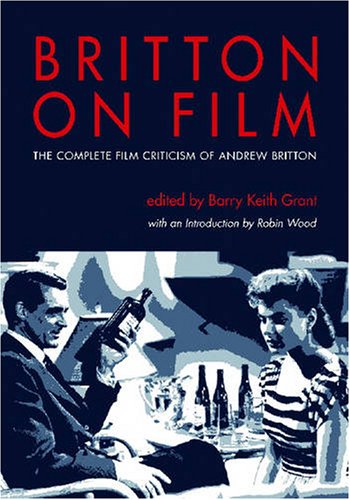

Most ebook files are in PDF format, so you can easily read them using various software such as Foxit Reader or directly on the Google Chrome browser.
Some ebook files are released by publishers in other formats such as .awz, .mobi, .epub, .fb2, etc. You may need to install specific software to read these formats on mobile/PC, such as Calibre.
Please read the tutorial at this link: https://ebookbell.com/faq
We offer FREE conversion to the popular formats you request; however, this may take some time. Therefore, right after payment, please email us, and we will try to provide the service as quickly as possible.
For some exceptional file formats or broken links (if any), please refrain from opening any disputes. Instead, email us first, and we will try to assist within a maximum of 6 hours.
EbookBell Team

5.0
68 reviewsFor fifteen years before his untimely death, Andrew Britton produced a body of undeniably brilliant film criticism that has been largely ignored within academic circles. Though Britton's writings are extraordinary in their depth and range and are closely attuned to the nuances of the texts they examine, his humanistic approach was at odds with typical theory-based film scholarship. Britton on Film demonstrates that Britton's humanism is also his strength, as it presents all of his published writings together for the first time, including Britton's persuasive readings of such important Hollywood films as Meet Me in St. Louis, Spellbound, and Now, Voyager and of key European filmmakers such as Sergei Eisenstein, Jean-Luc Godard, and Bernardo Bertolucci.
Renowned film scholar and editor Barry Keith Grant has assembled all of Britton's published essays of film criticism and theory for this volume, spanning the late 1970s to the early 1990s. The essays are arranged by theme: Hollywood cinema, Hollywood movies, European cinema, and film and cultural theory. In all, twenty-eight essays consider such varied films as Hitchcock's Spellbound, Jaws, The Exorcist, and Mandingo and topics as diverse as formalism, camp, psychoanalysis, imperialism, and feminism. Included are such well-known and important pieces as "Blissing Out: The Politics of Reaganite Entertainment" and "Sideshows: Hollywood in Vietnam," among the most perceptive discussions of these two periods of Hollywood history yet published. In addition, Britton's critiques of the ideology of Screen and Wisconsin formalism display his uncommon grasp of theory even when arguing against prevailing critical trends.
An introduction by influential film critic Robin Wood, who was also Britton's teacher and friend, begins this landmark collection. Students and teachers of film studies as well as general readers interested in film and American popular culture will enjoy Britton on Film.